Given that we use computers for practically everything nowadays, it’s no surprise that programmers, software developers, and software engineers —the people who build the software programs we use—are in high demand. Programmers and software developers work across a variety of industries, so it’s an enticing role because you can work in an industry you find interesting, while also making a pretty penny in terms of their average salary. In fact, people who work in this field have some of the best paying software jobs around.
So, what are the best-paying software jobs around? Should you become a site reliability engineer, a cyber security engineer, a business intelligence analyst, or a software developer? Do full-stack developers earn more than big data engineers? Which problem-solving skills and technical skills will pay off in the long-run? Which tech jobs offer the best benefits?
Not all software development jobs are equally lucrative—that’s why we’ve compiled this list. Below, we’ll detail nine of the highest-paying software jobs. So whether you’re new to the software engineering field or looking to career pivot, this list will give you a sense of the software development and computer programming landscape, and what different programmers can expect to make as their average salary. We’ll also look at the top paying software roles in the tech industry. Ready? Then let’s go.
Are Programmers Paid Well?
Generally speaking, yes. Software development and software engineering is a lucrative field and software engineers are compensated well. Some kinds of software developers are in higher demand than others, and some roles require more skills and experience. However, a programmer in any capacity is a professional individual that commands a certain level of compensation. When the right skills and experience writing software programs come together with the right role and industry, salaries for programmers can reach very high numbers. Your salary will vary depending on the computer systems or software programs you use, your experience in your chosen field (e.g. web development, data science, whether or not you know multiple programming languages), and your specialty. A degree in computer science can also boost your salary. Web developers, site reliability engineers, general software engineers, and data warehouse architects all know coding, but earn very different salaries. A software engineering manager might earn a lot more than a full stack developer at a large international, whereas the opposite might be true elsewhere. Your skills – including technical skills, problem-solving ability, and communication skills – may also be valued more highly in some companies than others.


Become a Software Engineer. Land a Job or Your Money Back.
Code in the industry's most widely used programming languages. Test your knowledge through job-ready projects. Work 1:1 with an industry mentor. Land a job — or your money back.
Best Paying Software Jobs
The right combination of coding skills (and often soft skills) can help you land one of the best-paying software jobs in the industry. Here are a couple of software engineering career paths that offer the most lucrative salaries:
Full-Stack Developers
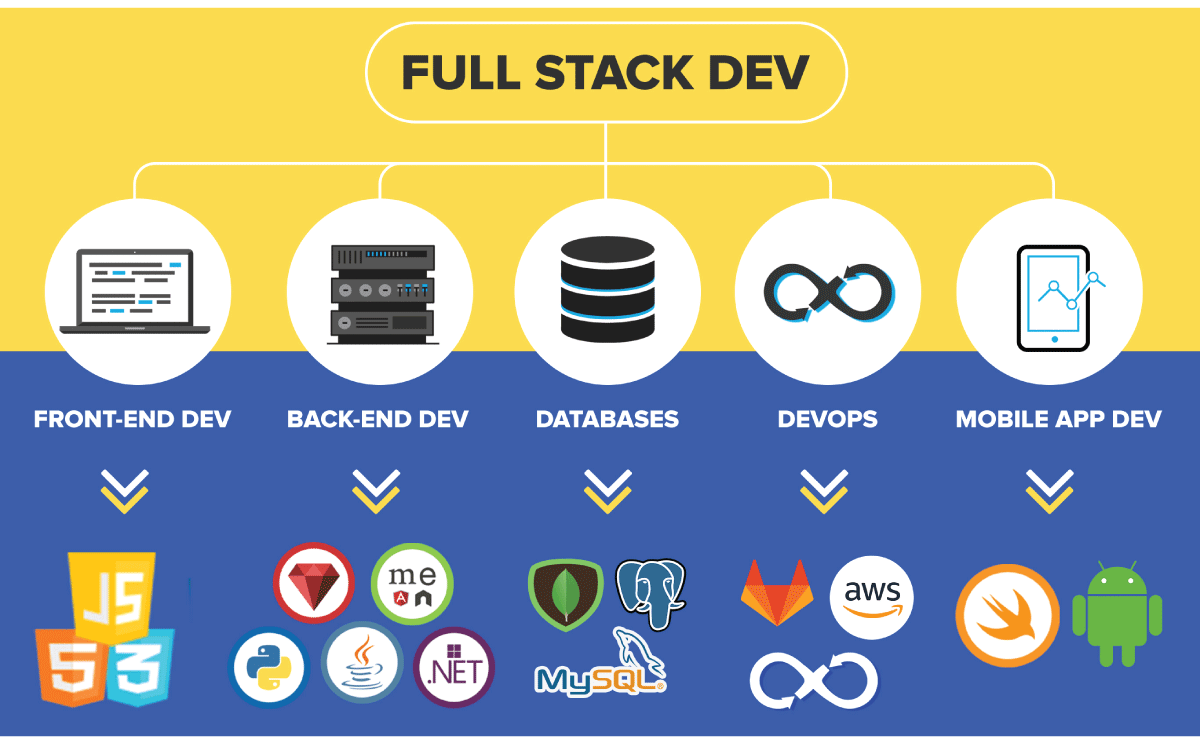
In web development, full-stack developers help with all sides and stages of a project. These software engineers can work with the back-end team to help create databases and manage servers, and they can assist the front-end team with designing the client-facing side of a project. They can also test and debug on both ends, implement security solutions, and develop APIs, and even create software programs if needed. Front-end developers know coding languages for the front-end, full-stack engineers need to know several. These computer programmers are in high demand and have no issues during their job search.
Full-stack developers can (and will) do a bit of everything in computer programming, making them the person with the most comprehensive view of the project in its entirety. This is why they are often tasked with the responsibility of overseeing the progress of a project and ensuring each piece of the puzzle will fit together. The multi-skilled and responsibility-heavy nature of this role is what makes it a top-paying coding job that’s especially sought after. As a result, it’s often one of the best software jobs or tech jobs you can get.
The average salary for a full-stack developer is $113,600, but your average salary can be higher depending on seniority.
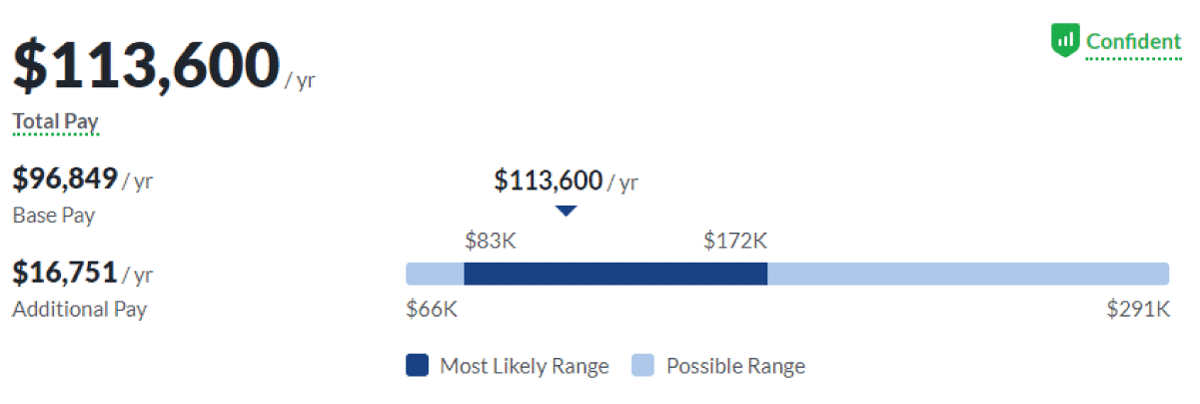
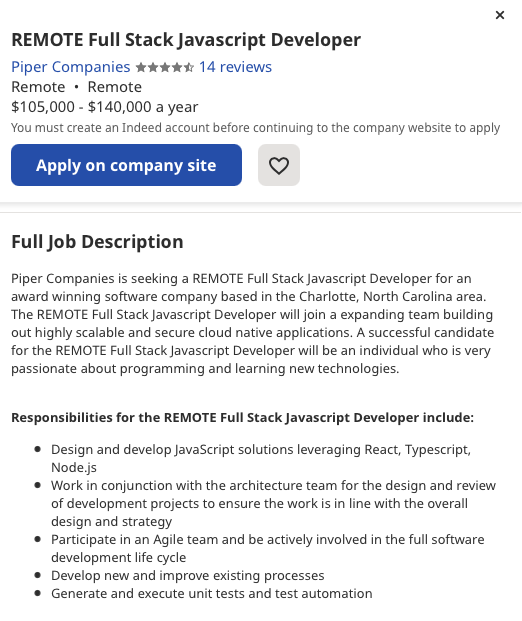
Cloud Architect
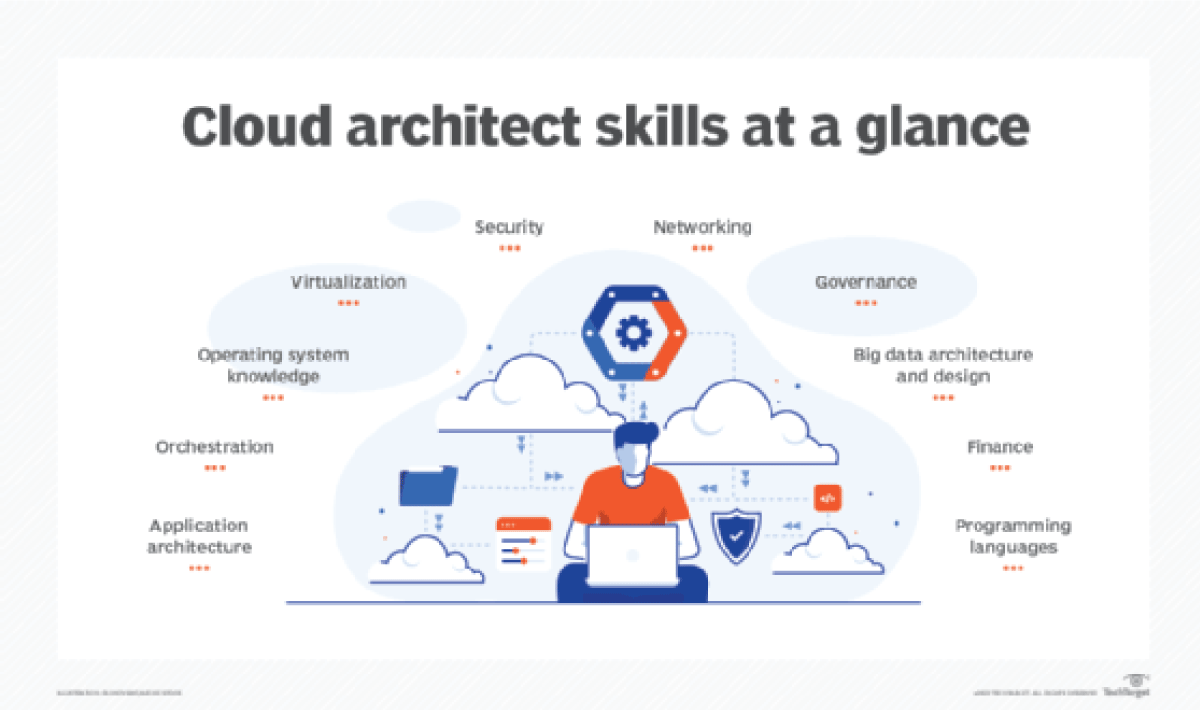
The cloud refers to the use of data centers to store files and applications, and consequently, allowing them to be accessed and used from any device (no download necessary). For example, Google Mail is a cloud-based email provider, and Google Drive is a cloud storage service.
For companies, switching to cloud computing means they no longer need to keep and maintain their own physical servers, which can make large-scale storage more accessible for small businesses. This allows such companies to access their files from anywhere in the world.
Get To Know Other Software Engineering Students
Pritisha Kumar
Software Engineer at Dialpad
Alexander Aboutanos
Software Development Consultant at Sogeti
Matthew Dillon
Front End Developer at LaunchBadge
Cloud architects (or cloud engineers) help companies set up their cloud, liaise with third-party cloud vendors, and maintain and monitor the system. A cloud engineer will use their expertise in cloud architecture and data storage and data warehouse management to lead their company in the right direction, tailor a cloud computing solution specific to the needs of the business, and then maintain the system they implement. They may go on to specialize as data warehouse architects, big data engineers or other fields of data science. They have to be extremely knowledgeable about security measures that protect the cloud. You would likely need a degree in computer science to work in this field.
The average salary for a cloud architect is $142,806, but your average salary might be higher or lower based on your location, experience, qualification, etc.
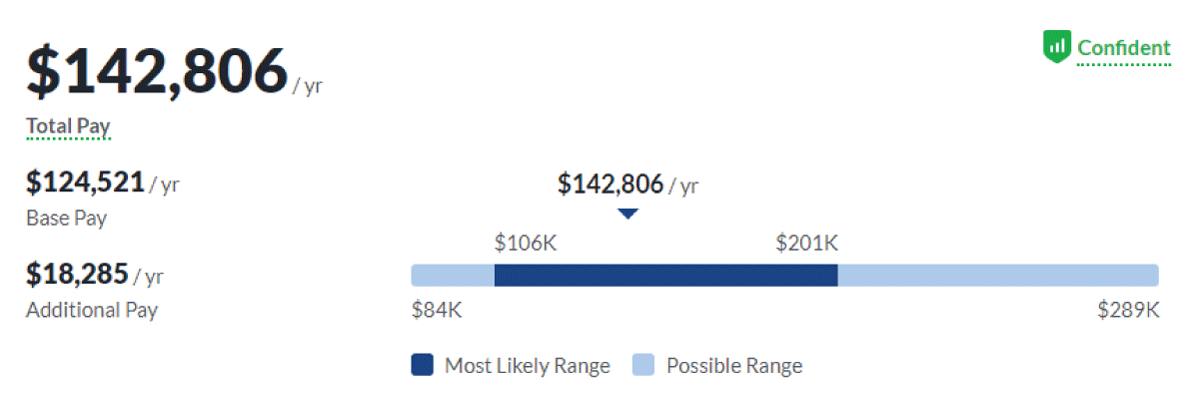

Data Science Professionals
Data science and analysis are prevalent in many industries such as tech, finance, healthcare, government, and entertainment. Data scientists take large sets of raw data from various sources, clean the data, standardize its format, and analyze it to uncover actionable insights. In essence, it involves finding useful information from previously incomprehensible data. This is why the role spans so many industries: because relevant and useful information is valuable to all kinds of businesses and organizations. Data scientists are very well-paid with a higher than average salary. You can earn a professional certification or attend a coding bootcamp to boost your income even further.
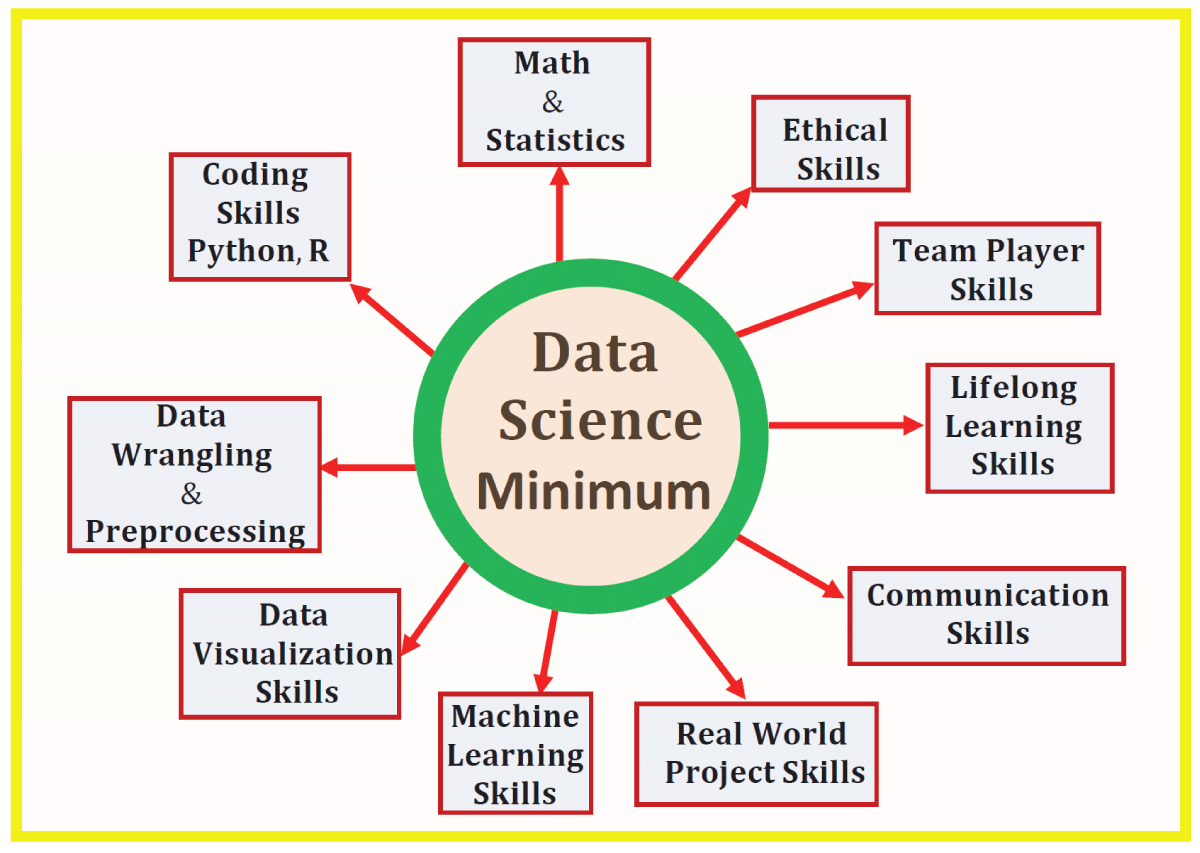
Data scientists are often paid more than data analysts as they will have more specialized knowledge in machine learning and artificial intelligence, data warehouses computer programming and deep learning techniques that can be used to answer even more complex questions. They can also develop useful software to optimize and automate the data analysis process or existing systems, freeing up more time for exploratory data analysis (EDA) in pursuit of new lines of inquiry. The average software engineer has to specialize before they can join the ranks of data scientists and keep up with the latest programming languages. You may need a bachelor’s degree in Computer Science to learn the key skills you need, but it’s not strictly necessary.
The average salary for a data professional is $120,861.


Machine Learning Engineer
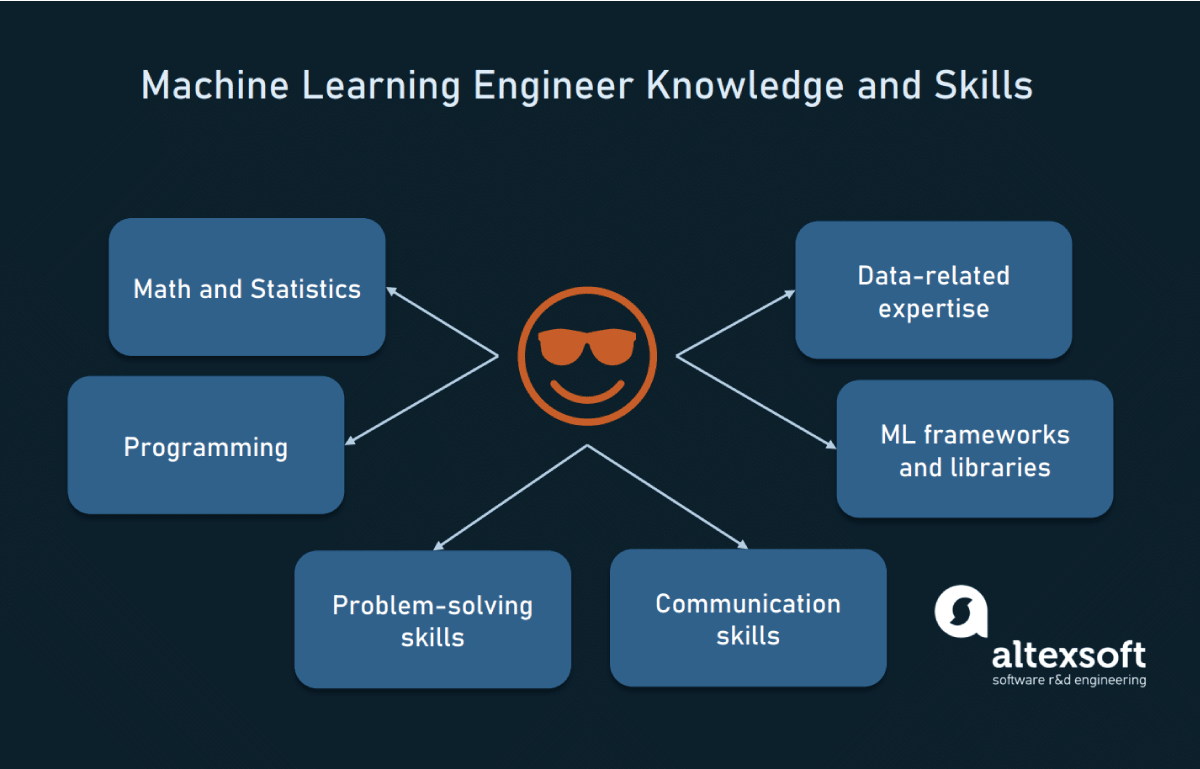
A machine learning engineer develops software that can “learn” to complete and improve on its job without human assistance. The aim is to create software that can not only run automatically but also navigate changes and problems it encounters, using past experience to adjust its approach and complete its objective.
This can be applied in a range of fields and technologies, such as recommendation algorithms, self-driving cars, and virtual assistants such as Apple’s Siri. A machine learning engineer is a computer programmer that will develop machine learning applications to create these kinds of products. Some applications will need to “learn” language, and others will need to “learn” how to process and react to their surroundings. In other words, the particulars of a machine learning engineer’s role will vary depending on the industry they’re in and the technology they are working with. This is one of the highest-paying software jobs out there, with a great average salary and an easy job search thanks to good demand in the business and IT industry.
The average salary for a machine learning engineer is $123,385.
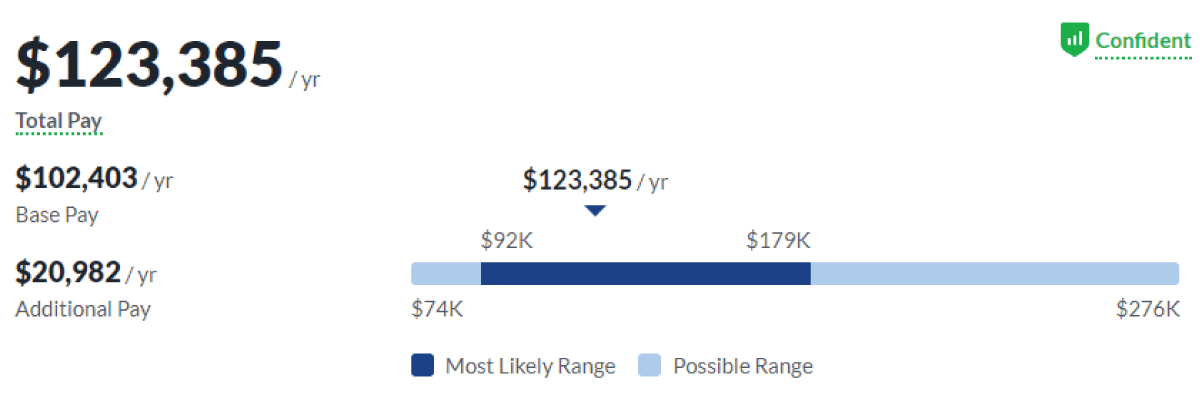
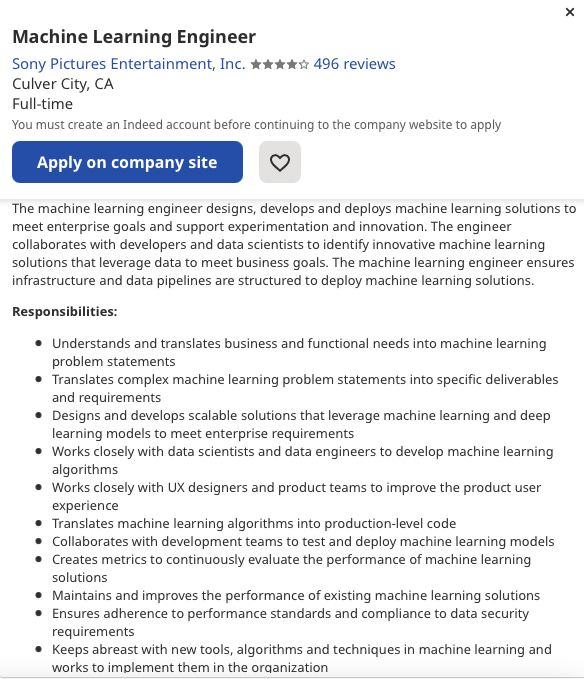
Database Developer
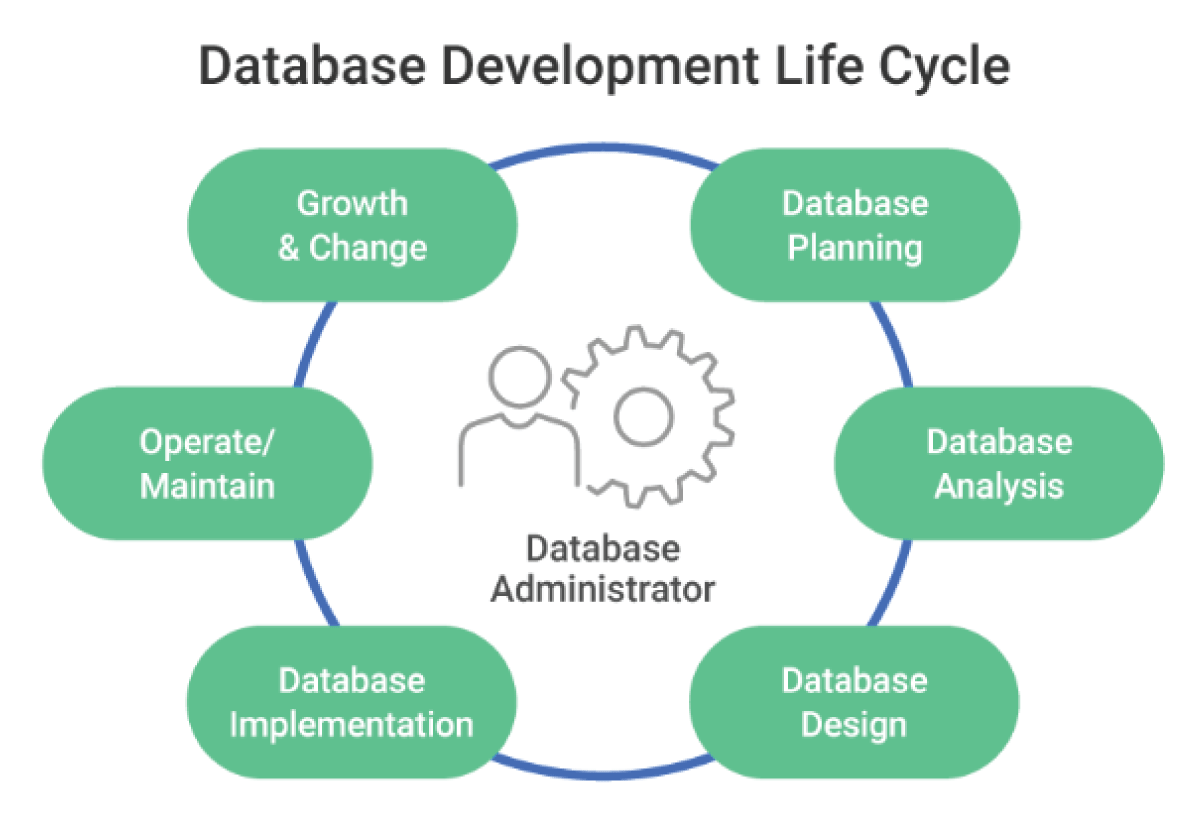
The role of a database developer is as advertised: the development of databases. Most businesses and companies in all industries record and store data on their various activities on a daily basis. This data is then collected to comply with regulations, to keep a record of the company’s history, to conduct data analysis, and for many other reasons.
In order to store such data efficiently and securely, databases and data warehouses are needed. However, databases are not a one-size-fits-all kind of solution; they must be tailor-made to suit the individual and specific needs of a business. Once established, databases must be continually maintained to ensure peak performance and security. You will need to know a programming language, develop your leadership skills, and work on your own projects to work in this field.
The average annual salary for a database developer is $107,838.
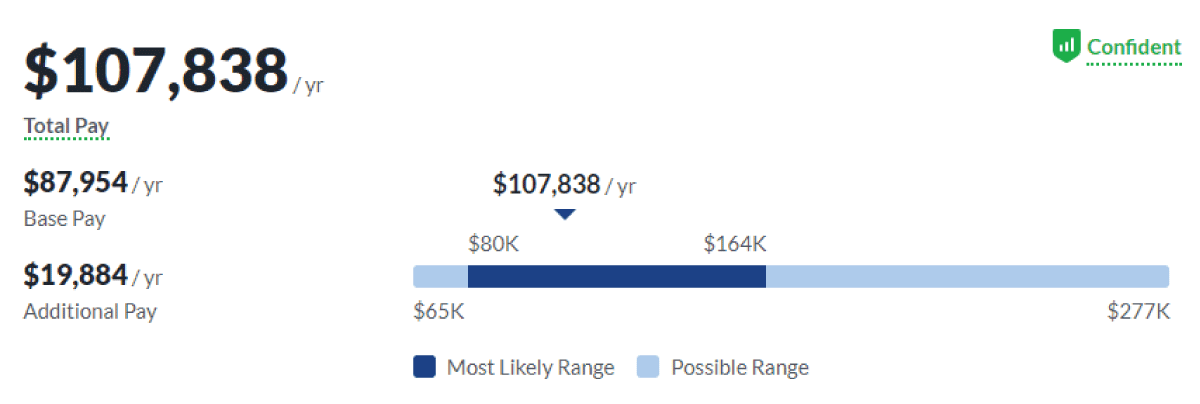
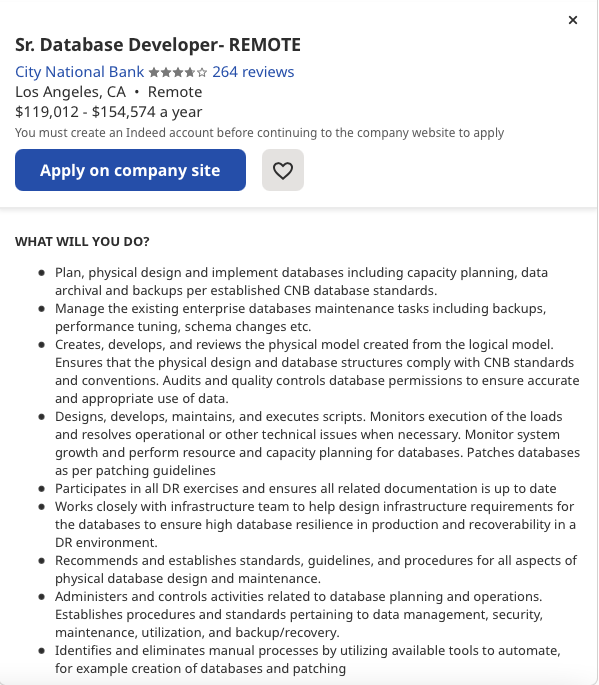
IT Specialist
IT specialists are employed to support other employers, maintain a company’s IT systems, and ensure the smooth running of daily operations taking place through technology. Multiple IT specialists may be hired at a single company, each focusing on different departments and areas, so the skillset needed to fulfill this role can vary significantly. Regardless of their specialized focus, an IT specialist will often need to possess knowledge of multiple operating systems, good communication skills and knowledge of programming languages. They will also require excellent problem-solving skills in order to support their colleagues and enable everyone to do their jobs efficiently. They may need knowledge of mobile app development or mobile apps.
A senior IT specialist will be responsible for the upkeep of systems that a company would not be able to function without, which is why they are highly valued and receive high salaries.
The average salary for an IT specialist is $102,095.

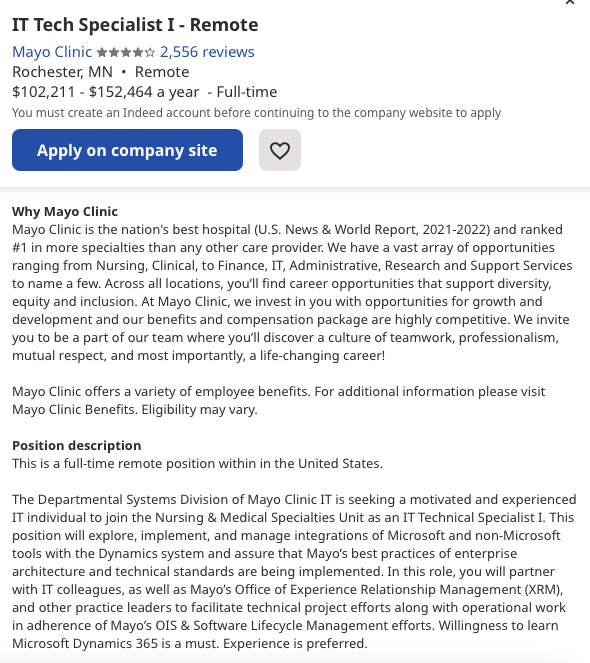
DevOps Engineer
The term “DevOps” comes from “development operations,” and the role of a DevOps engineer is to optimize the software development process. This means coordinating and leading all the teams involved in the development of a product and maximizing their efficiency.
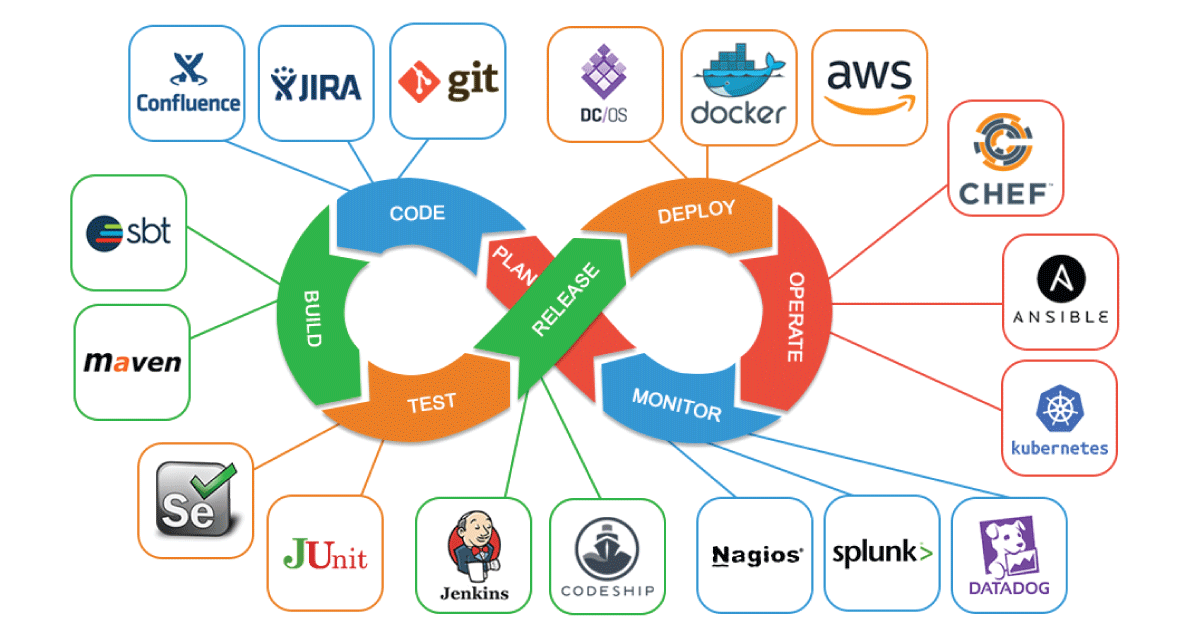
A DevOps engineer aims to keep software products as frequently updated and well-maintained as possible, which requires automating much of the development process. Instead of an update being a huge project that takes teams weeks of focused work to prepare for, a DevOps engineer aims to design and implement systems that automatically prepare for such updates in parallel with normal duties.
The desired result is to deliver frequent and dependable releases that improve user experience and fix bugs without a long and frustrating wait for the users. Keeping the updates stable and tidy also helps DevOps engineers prevent a manic rush before or during the release of a new patch.
The average salary for a DevOps engineer is $126,179.

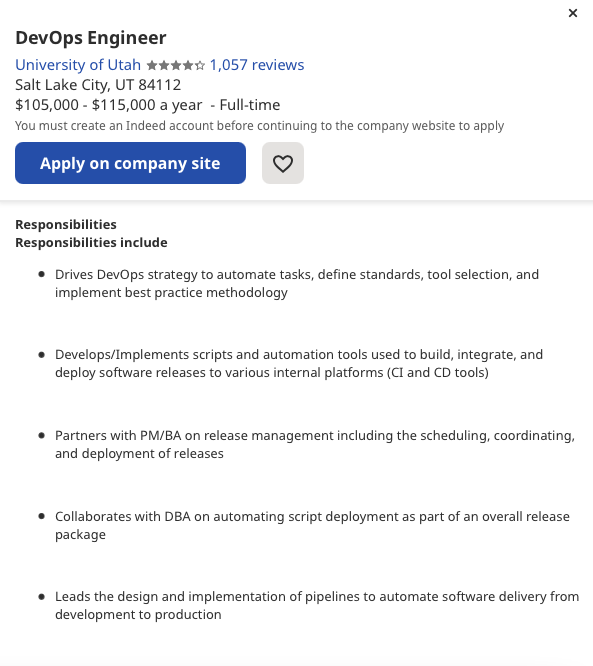
AI Engineer
An AI engineering role is a highly skilled position tasked with the research and development of machines that can simulate the behavior and thinking patterns typically associated with humans. Artificial intelligence makes use of machine learning to learn from the data fed to it, and to later develop behavioral patterns based on said data. The goal of many AI machines is to focus on automation and solve complex problems that currently can only be dealt with manually by humans.
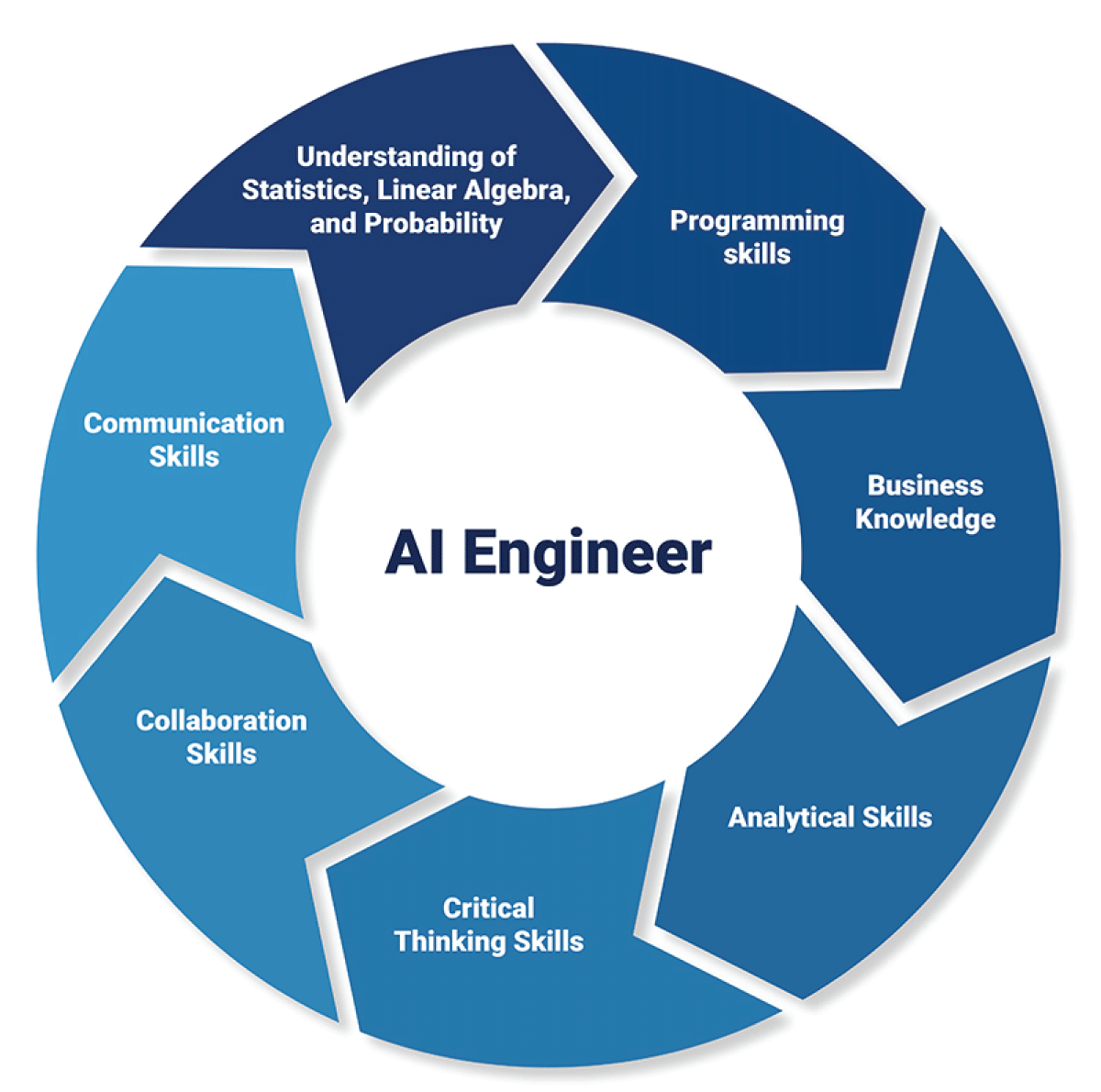
Usually, the software is told exactly what it should do in any given situation, so the number of possible situations must be limited. AI, however, has the ability to learn and figure out for itself what action it should take when a new element is introduced, and can therefore tackle problems with an unlimited set of unique variations.
To become an AI engineer, you need to have a deep knowledge of programming languages, statistics, algorithms, and deep learning. These niche skills and the growing demand for AI research are what make this role well compensated.
The average salary for an AI engineer is $129,250.

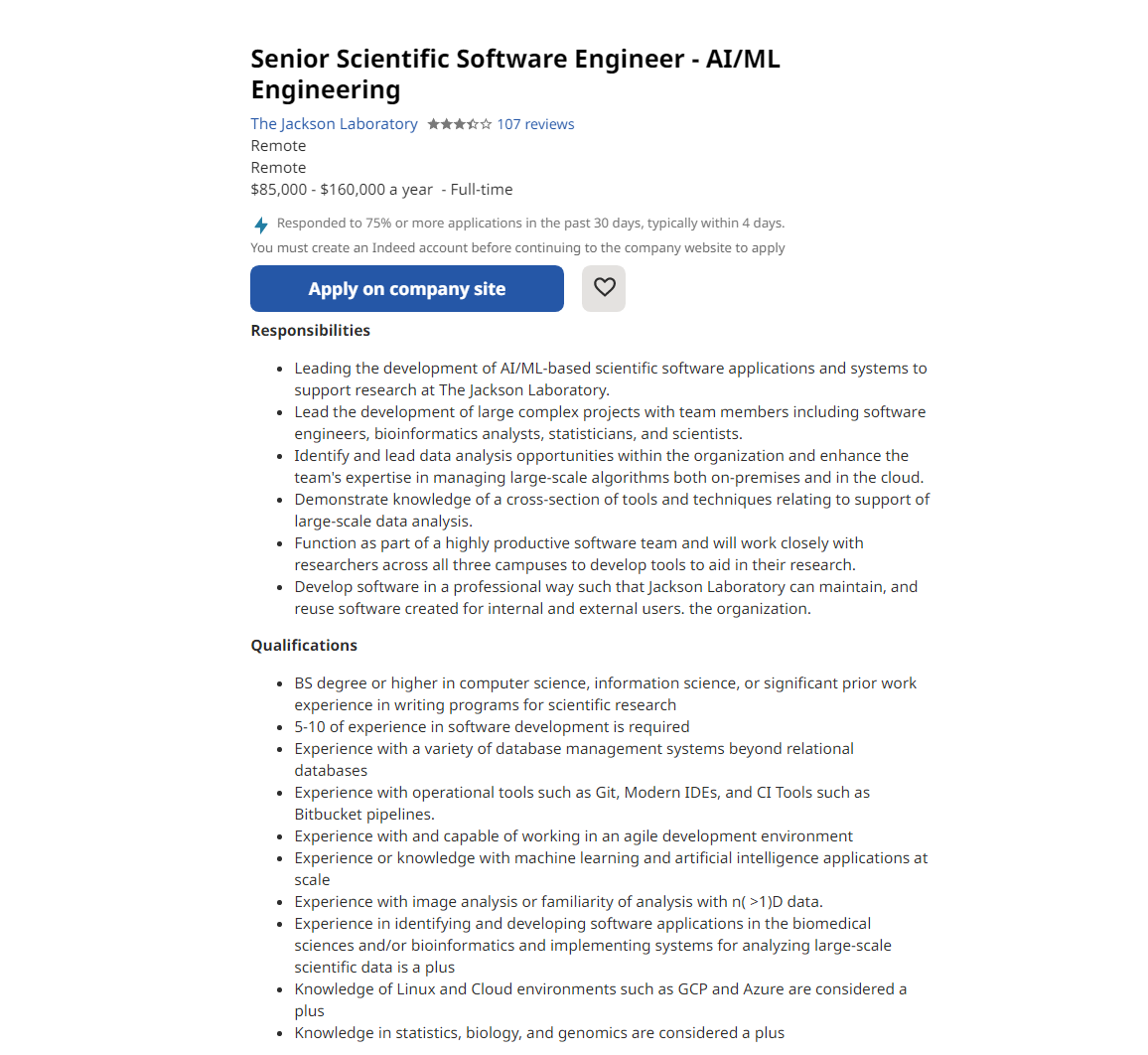
Systems Administrator
A systems administrator is responsible for keeping a company or organization’s hardware and software working efficiently and securely. This includes updating and installing new software, managing operating systems and their permissions, managing servers, security monitoring, and providing technical support to other departments.
A systems administrator must be ready to take on any job, from fixing printers to creating user permissions for accessing cloud files. They often need to work with and assist non-technical employees, and so must have good interpersonal skills to facilitate efficient and professional resolutions of problems.
The average salary for a systems administrator is $104,034.

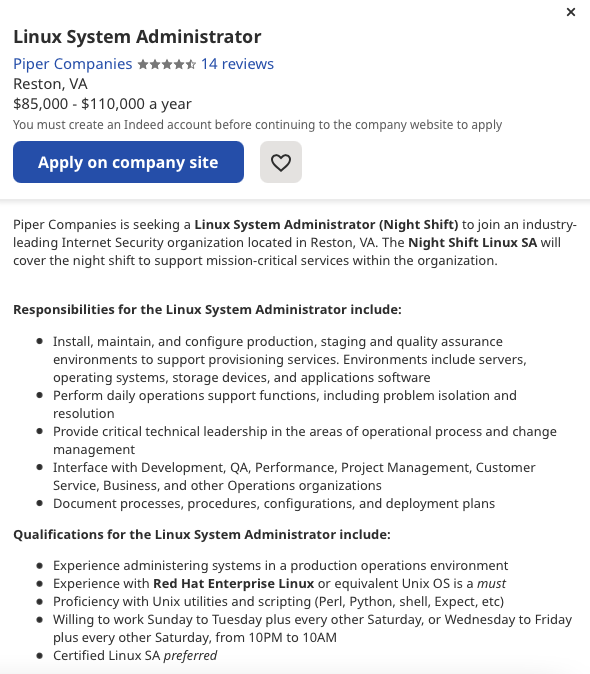
How To Earn More as a Programmer
There are a few things you can do to earn even more in your programming field. We will walk you through them below.
Get Certified
There are countless certifications to be earned in the many fields and specializations within programming. Microsoft, for example, offers a range of certifications for AI engineers, data scientists, developers, DevOps engineers, administrators, and more.
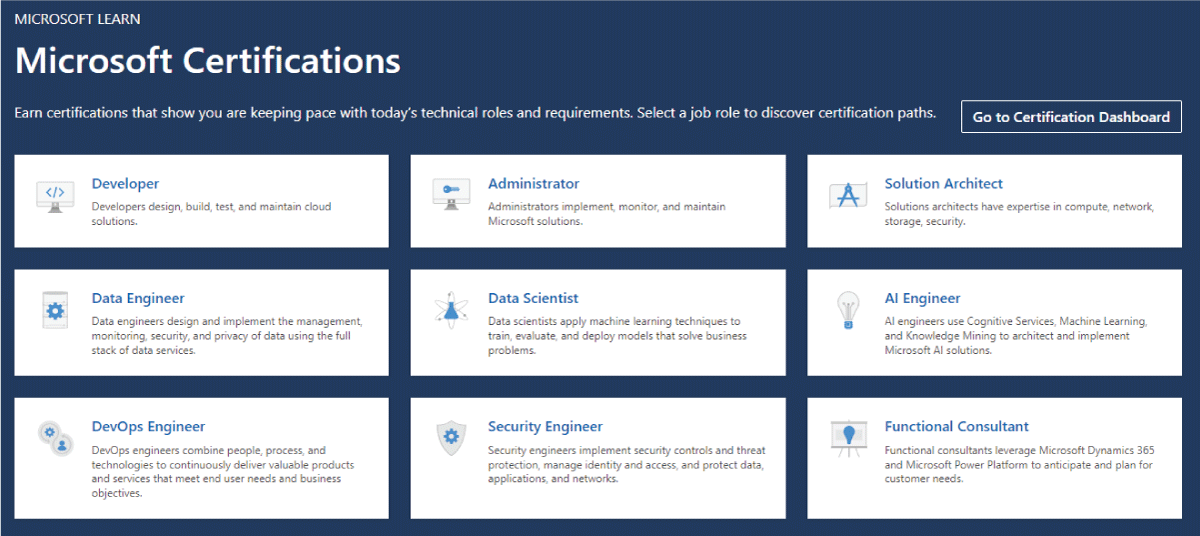
Google also offers certificates in IT support and IT automation. For those needing to tackle the basics first, there are online courses in various fields, such as data science bootcamps, data analytics bootcamps, and software engineering bootcamps. You can also pick up additional programming languages, or specialize, e.g. becoming a full stack developer, or master additional computer systems.
Pick Your Industry Carefully
The industry you choose will shape the experience and specialized knowledge you gain, making it progressively easier to get jobs and gain seniority within that industry. For example, if you’re passionate about the entertainment industry, you may choose to pursue this route. However, pay is often lower and job security is not great. Alternatively, you could work in the medical or government sectors, which have better job stability. As a general rule of thumb, the more popular and easy to enter an industry is, the more competition you will be faced with. Site reliability engineers will earn more than web developers, for example.
Compare Different Locations
The state you work in can affect your salary by a significant amount, so comparing locations and being willing to relocate for the right opportunity can be a good idea. New York, Texas, and California are among the best states in the US.
Grow Your Skills With Side Projects
Developing your skills and your portfolio with side projects is a sure-fire way to keep growing and improving as a professional. Your skills, passion, motivation, and dedication to your craft will help improve your value to a company — and your salary will rise along with it.
Specialize When Possible
The more focused and specialized your knowledge is, the more valuable you become in certain fields and to certain companies. Choosing a specialization can be difficult, as they are niche by definition, and the most in-demand niche can change frequently. However, any specialization is better than none, so choosing based on your passions and strong suits is also valid.
FAQs About the Highest Paying Jobs
We’ve got the answers to your most frequently asked questions.
Which Industry Pays Coders the Most?
The tech industry, government and defense, entertainment, healthcare, and retail are all top industries that both pay a lot to coders and hire often.
Which Location Has the Highest Salaries?
California remains one of the best paying states for programming professionals, with salaries typically sitting 10% higher than the national average.
Which Programming Languages Should You Specialize in Order To Earn More?
According to LinkedIn, Python is the most popular and in-demand programming languages in 2022, closely followed by Java and SQL.
What Size Company Pays Their Software Engineers the Most?
Big companies tend to pay the highest salaries and often have the best additional compensation in the form of stock shares and other benefits. Such giants are frequently winning talent from one another, meaning they are in constant competition.
Do I Need a Degree in Computer Science to Become a Software Engineer?
You don’t need a degree in Computer Science to work as a software engineer, but some companies will only consider Computer Science graduates. Having said that, Computer Science is a broad field – a specialized course can mean more than a Computer Science degree to some employers. Most businesses value experience over a Computer Science degree, so if you don’t want to pursue a formal education, back your resume up with a strong portfolio that showcases your Computer Science skills.
What Are Other Well-Paying Jobs to Consider During My Job Search?
Data architects: Data architects design and oversee the blueprints for organizations’ data infrastructure, ensuring data accessibility and integrity.
Mobile applications developers: A mobile application developer will create and maintain mobile applications, tailoring them to specific operating systems and user needs. As a mobile applications developer, you’ll always be in demand. Mobile developers are hired by top companies.
Software architects: Craft the overall structure and design of software systems, ensuring their scalability, performance, and security as part of the larger development team.
Cloud engineers: A cloud engineer must build, manage, and maintain cloud-based infrastructure, enabling organizations to leverage cloud computing resources effectively.
System engineer: A system engineer has to design, develop, and integrate complex systems, ensuring their compatibility, functionality, and adherence to organizational standards.
Enterprise architect: Oversees the overall technology architecture of an organization, aligning IT systems with business goals and ensuring compatibility across the enterprise.
App developers: App developers ceate and maintain mobile or web applications, focusing on user experience, functionality, and integration with existing systems.
Web developer: A web developer must design, develop, and maintain websites, ensuring their functionality, accessibility, and compatibility across different browsers and devices.
If I Want to Work in Software, What Type of Bachelor’s Degree Should I Get?
A Bachelor’s Degree in Computer Science: This is the most common and versatile degree for aspiring software developers. It provides a strong foundation in computer programming languages, algorithms, data structures, and software engineering principles.
A Bachelor’s Degree in Software Engineering: This degree focuses specifically on the design, development, and maintenance of software systems. It covers topics such as software requirements analysis, software design patterns, and software testing methodologies.
A Bachelor’s Degree in Information Technology (IT): This degree provides a broad overview of the IT field, including topics such as networking, cybersecurity, and database management. It can be a good option for students who are interested in a more general career in IT.
A Bachelor’s Degree in Information Systems: This degree focuses on the intersection of business and technology. It covers topics such as business process modeling, enterprise resource planning (ERP) systems, and data analytics.
A Bachelor’s Degree in Cybersecurity: This degree prepares students for careers in cybersecurity, which is the protection of computer systems and networks from cyberattacks. It covers topics such as cryptography, risk management, and incident response.
A Bachelor’s Degree in Data Science: This degree focuses on the collection, analysis, and interpretation of data. It covers topics such as statistics, machine learning, and data visualization.
A Bachelor’s Degree in Artificial Intelligence (AI): This degree provides an introduction to the field of AI, which is the creation of intelligent machines that can perform tasks that typically require human intelligence. It covers topics such as machine learning, natural language processing, and computer vision.
A Bachelor’s Degree in Web Development: This degree focuses on the development of websites and web applications. It covers topics such as HTML, CSS, JavaScript, and web frameworks.
A Bachelor’s Degree in Game Development: This degree prepares students for careers in the game industry. It covers topics such as game design, 3D graphics, and game programming.
A Bachelor’s Degree in Mathematics: A degree in mathematics can provide a strong foundation for a career in software development, especially in areas such as data science, machine learning, and cryptography.
What Is the Average Annual Salary of Various Roles in Tech?
Entry-level software developers: Entry-level software developers typically earn an average annual salary of around $60,000 to $75,000.
Mid-level software developers: Mid-level software developers with 3-5 years of experience typically earn an average annual salary of around $85,000 to $110,000.
Senior-level software developers: Senior-level software developers with 5+ years of experience typically earn an average annual salary of around $115,000 to $150,000.
Software architects: Software architects, who are responsible for designing and overseeing the development of complex software systems, typically earn an average annual salary of around $150,000 or more.
Your average annual salary will vary based on your eduction (e.g. do you have a bachelor’s degree in Computer Science?), your location (big city vs small town), and your experinece (entry level vs top management). You can influence your average annual salary by attending bootcamps.
What Are Some of the Highest Paying Software Jobs in the Tech Industry?
The highest paying software jobs are usually specialist roles. For example, a software engineer earns an average salary of around $118,129 per year while a data scientist and other data warehouse architects earns an average salary of $122,338 per year. A Software Engineering Manager enjoys an average salary of $163,500 per year, while web developers take home an average salary of $75,487 per year. Mobile app development pays off, too. It’s one of the highest paying software jobs with an average salary of $107,000 per year. Site reliability engineers can expect $123,000 per year while big data engineers earn $152,076 per year. A computer programmer is on the lowest tier at $77,550 per year, while an enterprise architect takes home an average annual salary of $131,824 per year. An information systems engineer will earn around $92,457 per year.
Bear in mind you can boost your income by learning a new programming language that is in high demand, getting your bachelor’s degree in Computer Science, attending a coding bootcamp, or pursuing professional certifications that are sought after in the IT industry.
Since you’re here…
Were you one of the tens of thousands of workers impacted by this year’s tech layoffs? Springboard wants to help. Our new Career Reboot Scholarship is intended to assist job seekers from tech looking to upskill, reskill and stand out in a competitive hiring environment. Get $1,000 off any Springboard bootcamp in software engineering, data analytics, UX design, cybersecurity, tech sales, and more. Visit this page for eligibility requirements and to apply.






